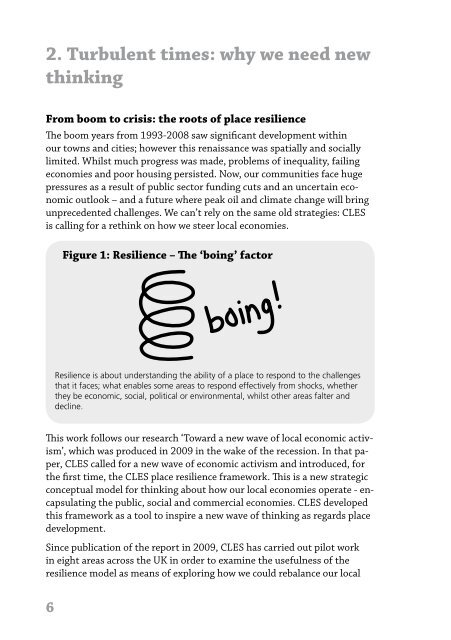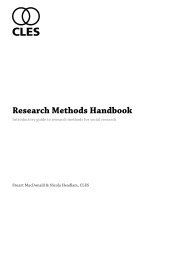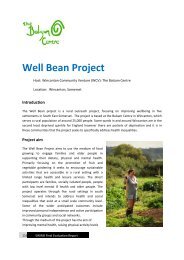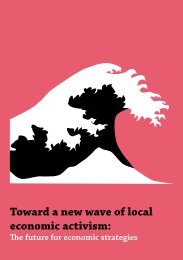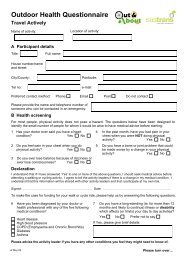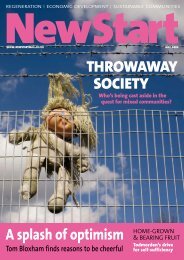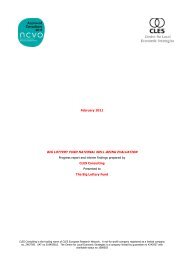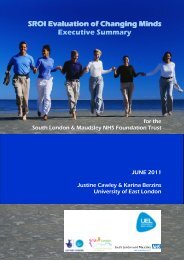Productive local economies: creating resilient places CLES
Productive local economies: creating resilient places CLES
Productive local economies: creating resilient places CLES
Create successful ePaper yourself
Turn your PDF publications into a flip-book with our unique Google optimized e-Paper software.
2. Turbulent times: why we need new<br />
thinking<br />
From boom to crisis: the roots of place resilience<br />
The boom years from 1993-2008 saw significant development within<br />
our towns and cities; however this renaissance was spatially and socially<br />
limited. Whilst much progress was made, problems of inequality, failing<br />
<strong>economies</strong> and poor housing persisted. Now, our communities face huge<br />
pressures as a result of public sector funding cuts and an uncertain economic<br />
outlook – and a future where peak oil and climate change will bring<br />
unprecedented challenges. We can’t rely on the same old strategies: <strong>CLES</strong><br />
is calling for a rethink on how we steer <strong>local</strong> <strong>economies</strong>.<br />
This work follows our research ‘Toward a new wave of <strong>local</strong> economic activism’,<br />
which was produced in 2009 in the wake of the recession. In that paper,<br />
<strong>CLES</strong> called for a new wave of economic activism and introduced, for<br />
the first time, the <strong>CLES</strong> place resilience framework. This is a new strategic<br />
conceptual model for thinking about how our <strong>local</strong> <strong>economies</strong> operate - encapsulating<br />
the public, social and commercial <strong>economies</strong>. <strong>CLES</strong> developed<br />
this framework as a tool to inspire a new wave of thinking as regards place<br />
development.<br />
Since publication of the report in 2009, <strong>CLES</strong> has carried out pilot work<br />
in eight areas across the UK in order to examine the usefulness of the<br />
resilience model as means of exploring how we could rebalance our <strong>local</strong><br />
6<br />
Figure 1: Resilience – The ‘boing’ factor<br />
Resilience is about understanding the ability of a place to respond to the challenges<br />
that it faces; what enables some areas to respond effectively from shocks, whether<br />
they be economic, social, political or environmental, whilst other areas falter and<br />
decline.


